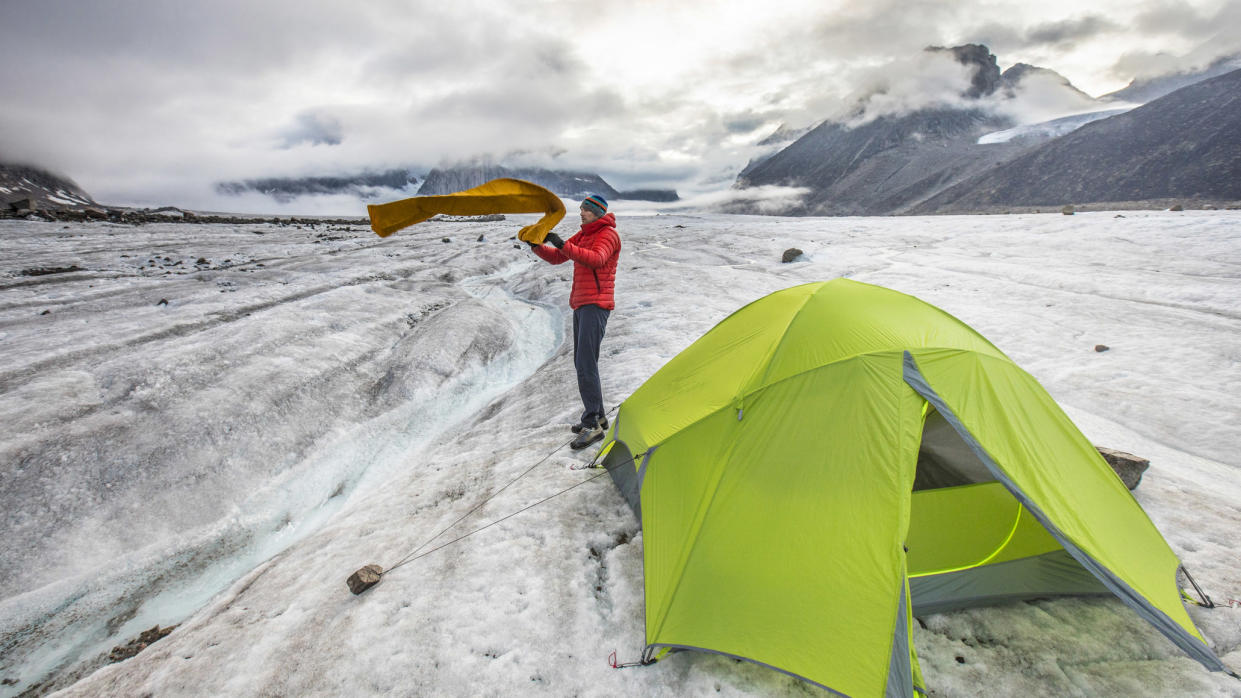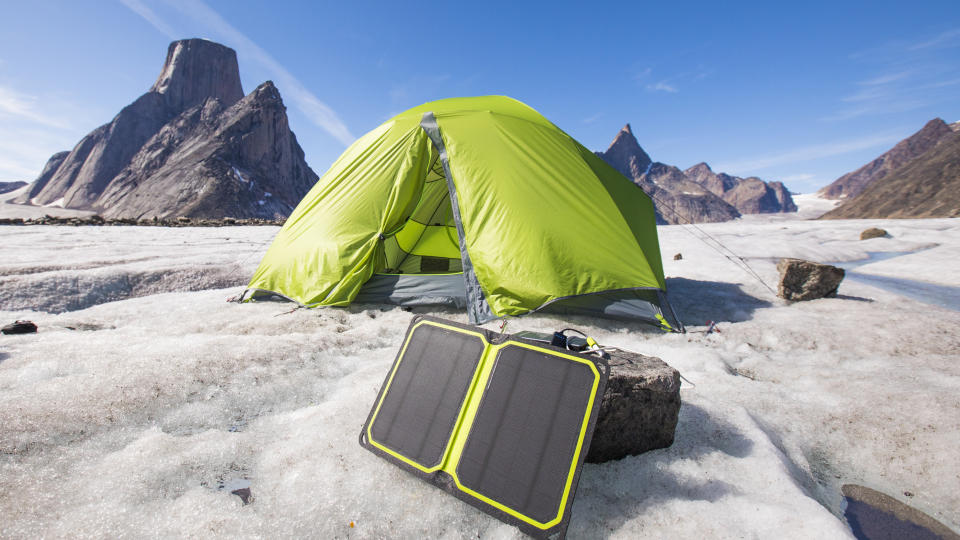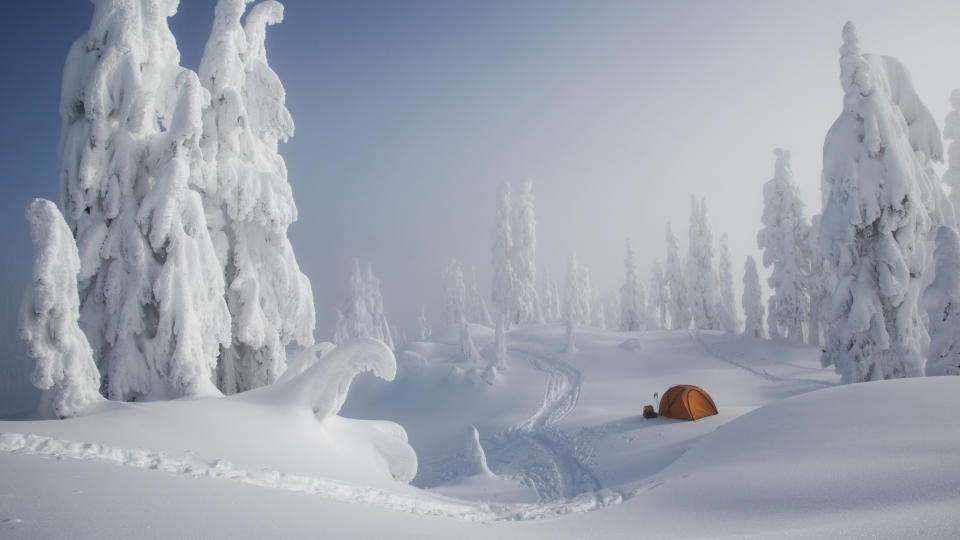Do you need a four-season tent for winter camping? Our guide

Those who've taken their camping to the next level in winter know how hugely rewarding it can be. However, pitching up during the freezing season is not without its challenges and the perceived barriers any many, with the prices of 4-season equipment chief among them.
A four-season tent typically costs a lot more than the average camping tent and it's understandable many find making such an investment tricky before knowing whether or not they'll even enjoy winter camping. So, the question is: do you need a 4-season tent for winter camping in the first place?
You may be wondering what a 4-season tent actually does that a 3-season tent doesn't. After all, when you strip it all back, they're both just made of poles and fabric, it's not as though your extra investment is bagging you an armored tank. Let’s take a look at this issue to work out when you really do need a 4-season option and when a standard tent will suffice.
Meet the expert
Today's best deals
What makes a tent four-season?
4-season tents are designed primarily for winter conditions
They feature sturdier fabrics, stronger poles and tend to have a lower profile
Some feature a double walled design

The difference between 4-season and winter kit can be a little bit confusing. Even though a three-season tent is a fairly accurate description of its purpose, a four-season tent isn’t necessarily optimal for camping in all four seasons. A four-season tent is perhaps more accurately a winter tent, designed to withstand cold, snow and winds.
That doesn’t mean it’s insulated, however it features sturdier fabric with fewer mesh panels to keep cold wind out and body heat in. Of course, a good 4-season tent will be waterproof with taped seams, while stronger poles hold up against the weight of snow and force of wind. These tents often have a lower profile to help maintain structural integrity when you're camping in windy conditions. You’ll often find that four-season tents have a roomier design or an added vestibule that is sometimes removable, assuming that in winter you’ll be camping with more gear that needs to come inside with you.
In case it’s not obvious, four-season tents are usually a bit bulkier and weigh more than three-season tents that sleep the same number of people. They can, however, come in both double and single-walled designs and various sizes starting with one-person backpacking models, so don’t assume they’re all mammoth-sized.
How much warmer is a four-season tent?
A four-season tent provides greater protection against the cold
It blocks wind and traps body heat better than a 3-season tent
However, staying warm in a tent is more to do with your sleeping bag and pad than the tent you're in

As we’ve already mentioned, the warmth provided by a four-season tent largely comes from its ability to block wind and trap body heat better, as opposed to it actually being warm. How much warmer a four-season tent is really depends on various factors such as the temperature outside, the availability of sunlight, the tent construction and how many people are in the tent, as the results of a research project by the University of Canterbury discovered.
In extreme conditions, it’s fair to say that a four-season tent will likely provide more protection against the cold than a more breathable three-season tent, but it’s impossible to say exactly how many degrees we’re talking about here. Truly, staying warm in a tent mostly comes from your sleeping pad, sleeping bag and clothes in either tent, so you’ll definitely want to look into a really warm sleeping bag, such as the Mountain Hardware Phantom 0F, if you're going to be camping in extreme cold.
Do you need a 4-season tent for winter camping?
With a good forecast, a 3-season tent can suffice for winter camping in some regions
In alpine regions where you'll be camping at higher altitudes, you'll need a 4-season tent

To answer the original question, the answer is, it really depends where you’re winter camping because as you know, winter is not the same everywhere. Let’s say you’re planning on pitching your tent at low (or even medium) elevation somewhere like northern California, Zion National Park, Scotland or the Lake District. While any of these places can experience weather extremes, the chances are you could get away with using a three-season tent and have no problems, or just wait for a half-decent weekend to go camping.
However, if you’re planning on winter camping in alpine zones, above treeline, in places that experience a lot of snow – let’s say the Rockies in Colorado, Wyoming or Montana – then a four-season tent would be a really good idea. That said, a tent that traps body heat better might not be ideal in those same locations come the warmer months, when its lower breathability would have you sweltering away. So if you are planning on camping year-round and at high altitude in winter, a four-season tent would be useful, but you wouldn’t actually use it for the other seasons and would probably want a three-season tent anyway. For a one-off winter expedition, you’d be much better off renting a winter tent than buying one.
Best one-person tents: shelters for solo adventures

